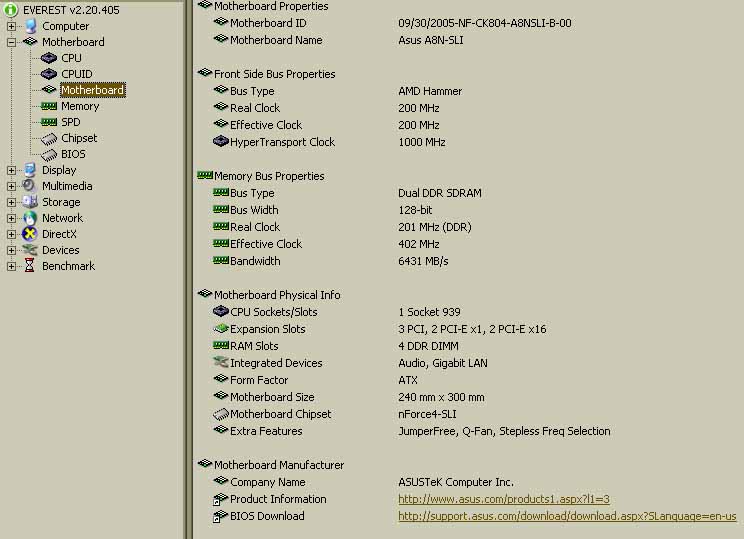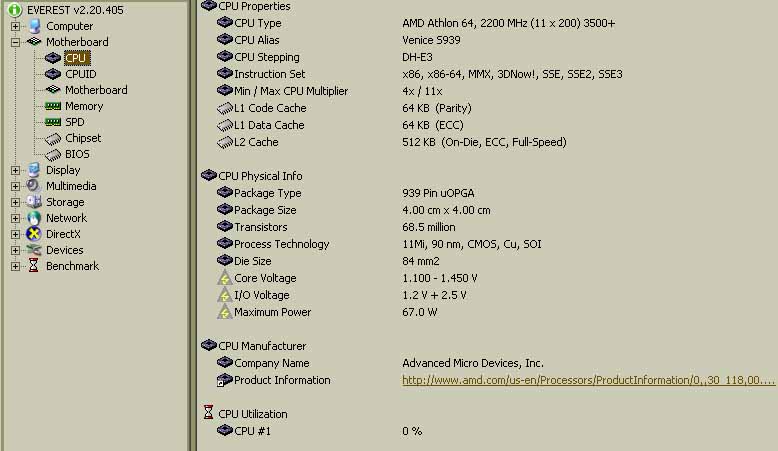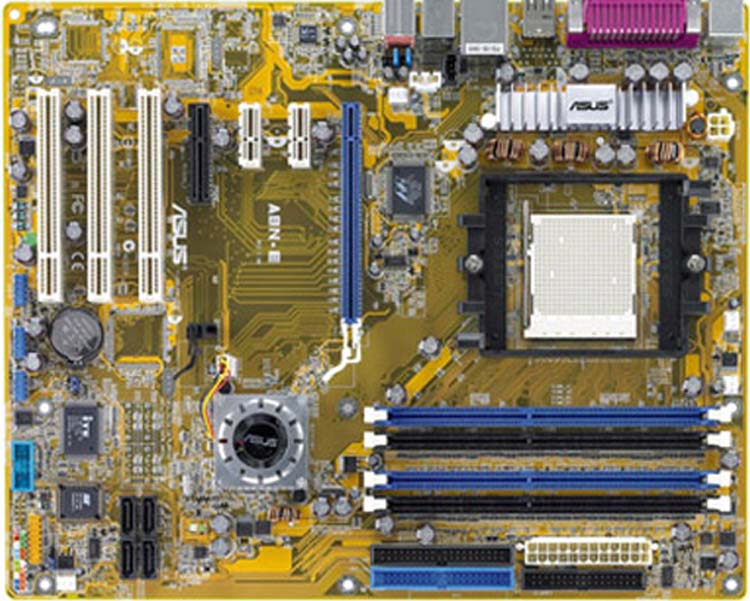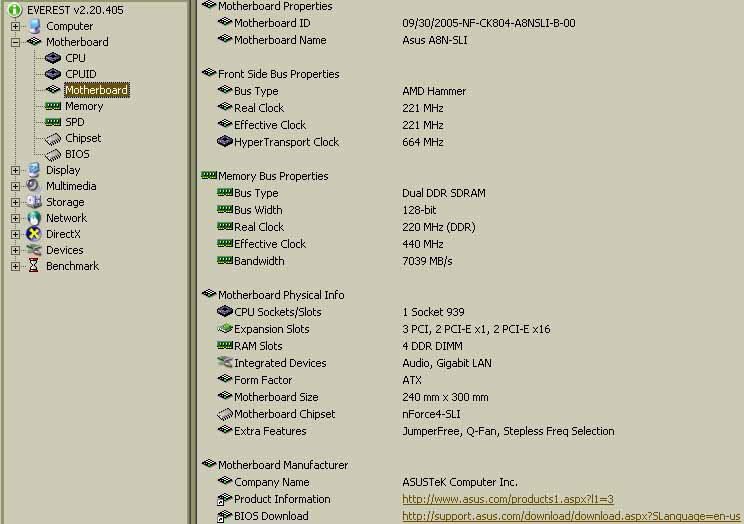I didn't look it up, I wrote it.
Your bus spec tells me you have either a socket 939 or 940 based chipset. The reference to 2000/1600 mhz is generic and depends on the CPU / hypertransport frequency used (I think!). It's not indicative of your actual bus speed. However, the fact that you see the 2000/1600 specification means that your system is capable of those speeds, which is great.
If you would like a great program that's small, accurate and informative, try Everest Home Edition, it's a great tweaking aid, in the sense that it gives you real time system info.
http://www.lavalys.com/products/downloa ... =1&lang=enHere, you can see my Front Side Bus properties, note that the speeds are not converted to DDR, but are "pure". Hence you see my FSB speed as 200 x 5 = 1000, this equates to the 2000 you see in your spec due to the 64bit hypertransport thingy and DDR.

Your system cache is your swap file or virtual memory, which is usually windows managed and is really just reserved space on your hard disk that programs use as virtual ram. You can set the swap file to be a constant size, (same min and max values) as a performance tweak, as long as your applications don't use more than the value you set. I have mine manually set to 1024mb.
Your Processor cache spec on the other hand, will be available in the cpu section of Everest.
My cache is L1: 64kb x 2 + L2 512mb

When I look at your signature pic, I see immediately that the most meaningful info (your mainboard ID) is missing. The mainboard ID tells me what your system is capable of.
For instance, If I were to advertise my spec, it would read:
Asus A8N-SLI,











